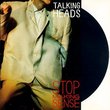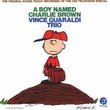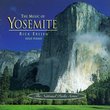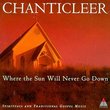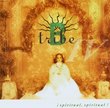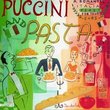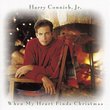| All Artists: Sting Title: Symphonicities Members Wishing: 5 Total Copies: 0 Label: Deutsche Grammophon Original Release Date: 1/1/2010 Re-Release Date: 7/13/2010 Genres: Pop, Rock, Classical Style: Adult Contemporary Number of Discs: 1 SwapaCD Credits: 1 Other Editions: Symphonicities UPC: 602527425375 |
Search - Sting :: Symphonicities
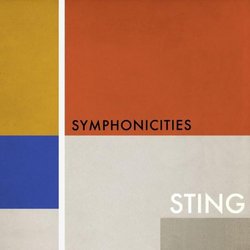 | Sting Symphonicities Genres: Pop, Rock, Classical
Symphonicities; the companion CD to accompany Sting's highly-anticipated world tour, which begins June 2 in Vancouver, featuring the Royal Philharmonic Concert Orchestra, conducted by Steven Mercurio (Bocelli, Pavarotti). ... more » |
Larger Image |
CD DetailsSynopsis
Product Description Symphonicities; the companion CD to accompany Sting's highly-anticipated world tour, which begins June 2 in Vancouver, featuring the Royal Philharmonic Concert Orchestra, conducted by Steven Mercurio (Bocelli, Pavarotti). The new studio album, comprised of Sting's most celebrated songs re-imagined for symphonic arrangement, serves as the ultimate commemoration of the live concert experience. Created exclusively for the tour and correlating album, Sting's greatest hits have been reinterpreted with brand new orchestrations arranged by Jorge Calandrelli, David Hartley, Michel Legrand, Rob Mathes, Vince Mendoza, Steven Mercurio, Bill Ross, Robert Sadin, and Nicola Tescari. In addition to "Every Little Thing She Does Is Magic," highlights include fan-favorites culled from The Police songbook such as "Roxanne" and "Next To You," as well as songs from Sting's enduring solo career including "Englishman in New York," "I Burn for You," "Why Should I Cry for You," and "She's Too Good For Me," among others. Symphonicities is produced by Rob Mathes and Sting, mixed by Elliot Scheiner (Steely Dan, Fleetwood Mac) and Claudius Mittendorfer (Interpol, Franz Ferdinand).Sting will also be joined by a quartet comprised of Dominic Miller (Sting's longtime guitarist), David Cossin (a multi-percussion specialist in new and experimental music and featured member of the Bang on a Can All-Stars), Jo Lawry (vocalist), and Ira Coleman (bassist). Similarly Requested CDs
|
CD ReviewsA word from the defense..... R. Mathes | Cos Cob, CT, U.S.A. | 07/16/2010 (4 out of 5 stars) "Hello all, I was so taken with the detail and beautifully written review by Brian that I had to post a review of my own, despite the fact that I have no right to review it because I produced this record with Sting. This music has meant so much to me, these songs, this artist, that the daunting task of arranging a lot of the current tour and producing this record haunted me for months. This review will contain some defensive comments but I hope they at least illuminate the process of making this record for anyone who cares. It will also hopefully serve as a slightly better indication of why (Brian's question) the record was made and the thinking behind a lot of it. First of all, for those who think that Sting is slacking off and just trying to continually recycle existing material, be aware of this. The record was something that happened almost by accident and the whole venture was essentially another voyage of discovery for Sting, who loves Orchestral music. The story: He was invited by both The Philadelphia Orchestra and The Chicago Symphony Orchestra to put on a concert of his music arranged for orchestra. A tour was planned based on the appeal of those concerts. They were a thrill for him. In his words, "what a joy and honor it is to hear songs I often wrote on a guitar alone in a room played by a group of peerless musicians". All that said, the concerts highlighted the difficulties of a venture like this. Many music stars do Standards records and other similarly minded projects to appeal to adults who attend Symphonic concerts and higher brow Arts events but still love great Pop music. These projects are occasionally successful but they can be artistically dreadful. Is there anything worse than a series of ballads peppered with cloying Strings?? This was exactly what Sting did not want to do and in fact his earliest direction to the arrangers was to "please not give the orchestra endlessly held chords that are beautiful but are better for putting people to sleep than entertaining them". "Write with adventure and invention", he said. (If you listen carefully to my arrangement of "Roxanne" or Dave Hartley's arrangement of "I Hung My Head", you hear intertwining melodic lines in the orchestra and not just lush chords.) Because of Sting's directive, the first arrangements were therefore extremely intricate and involved but occasionally covered up the charm of the songs. I was brought in to write orchestrations that were more mindful of the original records while not imitating them. I knew two things. Number one, there was no way in hell one could compete with such magnificent records. Number two, I knew some longtime Sting and Police fans would be perturbed by any kind of orchestration at all written over songs that were originally played by three magnificent players. It was almost like starting with a minus sign on your forehead. The Police were a band that was all about space. How could I not take on the challenge, however, of writing arrangements of songs this strong??? Too often, arrangers in the music business are invited to write orchestrations on Adult Contemporary projects, most typically big ballads and one does not often get to work on muscular and deep music like Sting's body of work. I wrote a number of arrangements and one of the things I wanted to figure out was a way to approach some of the harder and more intense material. I wanted to write vital and active orchestrations to offset the tracks that would inevitably be what people expect on a record like this; rich and ruminative slower material, something an orchestra does so well. In the spirit of those early records I found what I thought was a way in. I went to see my friend David Cossin, this remarkable percussionist from Manhattan, play with the group Bang On A Can All Stars. The concert was amazing, arrangements of Brian Eno's "Music for Airports" and other post modern pieces. I thought via the use of odd found percussion instruments and intense, hard and joyous String writing we could actually play some of this material. I initially recorded the "Next To You" arrangement for Sting to hear and he loved it. He was most excited about the fact that this meant we could approach things like "She's Too Good For Me" and even the earlier Punk inflected songs and create a concert that was really a challenge for the orchestra. "Next To You", within Sting's camp and with musicians in the New York area, got such a positive reaction that it served as a real kick in the pants and got us going. Sting started getting deeply involved in the direction of the arrangements and enjoyed that process, knowing instinctively when the arranger was heading down a rabbit hole. He did not intend to just make another record of his songs but he really was moved and galvanized by the experience of hearing the songs in a new way. The concerts have gotten terrific reviews and while rehearsing in London we decided to record some of the material at Abbey Road Studios, where the rehearsals took place. The recordings I had done in the late winter came out so well also that we realized there could possibly be a full record here when added to the Abbey Road stuff. I kept experimenting in New York and discovered "End Of The Game" and "Pirate's Bride". I told Sting I could not believe these beautiful songs were virtually unknown, "Pirate's Bride" in particular being one of his most beautiful ballads. He gave me license to try things including his idea of evoking a classic British Colliery Brass Band for the remarkable "We Work The Black Seam", one of my favorites on the project. The one thing even the naysayers would have to admit is that we avoided some terrible sand traps: 1. The record is not all ballads. "Next To You", "She's Too Good" and "End Of The Game", among others, feature demanding orchestral writing and yet take the originals and don't distort them beyond recognition. 2. The ballads all have a concept behind them--"Roxanne" came from Sting's suggestion of the original obsessive Bossa Nova groove, the one he used on All This Time, the concert DVD recorded on 9/11, "My Ain' True Love", arranged magnificently by Steven Mercurio, is haunted and not cloying in the least, evoking a Civil War battlefield beautifully, and "Pirate's Bride" features haunted Oboe and Jo Lawry's incandescent voice. One of the strongest songs from the tour ballad wise, "Why Should I Cry For You" makes use of the gorgeous Island Of Souls melody, the melodic germ that propels the whole Soul Cages record. It is available elsewhere as a bonus cut. 3. The arrangements do not go off on a million tangents nor do they drown the songs in either syrup (in my opinion) or a million endless interludes, which is often the case with projects like this. The main reason I wrote this review is to put to rest the idea that Sting is idle and only recycling. He is writing music for a new project right now and he has just wanted to spend the last few years on input, as he says, and not output. He is constantly learning and endlessly curious. He has had such a moving and wonderful time hearing the songs fleshed out for great instrumentalists and he has had a chance to work with some wonderful orchestral writers; Vince Mendoza, Jorge Calandrelli, Dave Hartley, William Ross, Robert Sadin and the magnificent Italian composer Nicola Tescari, who arranged one of the highlights of the current tour, a fully contemporary and almost Alban Berg-worthy take on "Moon Over Bourbon Street". I am sad that "Next To You" and "She's Too Good" seem to be needless to one of the reviewers below. They are just about joy and keeping the project alive and exciting. The opening of "She's Too Good" was written with the same kind of spirit that I get when listening to the last movement of Stravinsky's Violin Concerto. None of the arrangers, including myself, have any patience for pastiche though, trying to sound like this composer or that composer. Absolutely not. Rather; we were all energized by the remarkable chance to work on arrangements for one of the most gifted and wonderful songwriters of the last 30 years. I hope Brian will give the disc a second and third listen and I hope some of you who are disappointed by the orchestration on these at least understand where this album came from. It would take my entire life to answer every bad review. It is probably silly to even write this but I love talking about concepts and music and I found most of these reviews smart, engaged, and written with care. Sting is great to watch when dealing with harsh criticism. I paraphrase: The Arts are all about exploration, he would say. Self doubt and criticism can creep in and make you question trying different things. Avoid it at all costs. He loves singing "Roxanne" and "Every Little Thing", which I arranged as a tribute to the Latin underpinnings behind the original recording (we have actually done a new mix of it with all new percussion called the "Bronx Street Fair Mix" which is incredibly rhythmic and pumping and it should be available on the upcoming vinyl release). He loves singing "Englishman..." and "Next To You" and recognizes the gift he has received: the reality that so many people want to hear him sing these iconic songs. He just wants to keep it interesting. I admire him for it and working on this project was a privilege. Above all listen to that voice. Just extraordinary! I hope you check it out. It came from the heart. Thanks Brian for getting me thinking. Music, music, music, music!!!!! Rob Mathes" Life is too short to keep recycling the past Brian | USA | 07/14/2010 (2 out of 5 stars) "UPDATE: For what it's worth, I've had a very friendly and interesting conversation with the project's arranger via his review post on Amazon. If you're interested, you can see our exchange at this link (copy and paste): http://www.amazon.com/review/R2HD97MAQRJQ07/ref=cm_cr_rev_detmd_pl?ie=UTF8&cdMsgNo=2&cdPage=1&asin=B003LAH7MU&store=music&cdSort=oldest&cdMsgID=Mx1NQMHAE84OF9P#Mx1NQMHAE84OF9P --------------- Since 2004's "Sacred Love", Sting seems to have hit a creative dry spell, alternating between touring his back catalog (first with his Broken Music tour then the Police reunion) and the cover album route (although to his credit, his selections and instrumentation have been anything but traditional). Now the two paths intersect with Symphonicities, a collection of Sting's music rearranged for and performed with an orchestra. Does it work? Not entirely. "Next To You" The album "explodes" out of the gate with strings sawing away at the chords and an arrangement that parallels the original song. I say "explode" in quotes because I found the effect to be a bit baffling. The thin-sounding auxiliary percussion is no substitute for the pounding drums of the original, and ends up emphasizing what's missing as opposed to opening your ears to a new aspect of the song. It ends up sounding like a parody, almost like the cheap "Vitamin String Quartet tribute" CDs that were knocked out a few years ago. The intent may have been to have some fun ("Look! The Royal Philharmonic is doing something CRAZY!"), but it seems more self-congratulatory than anything. In any case, given the generally slower mood of the album, this is a strange way to get the listener's attention before immediately slowing down the pace. It sounds completely ridiculous, and is an arrangement that sheds no new light on the song. I'm glad they had fun doing it (and there's no denying the technical skill involved), but as a listener, I can't imagine ever wanting to intentionally put this on. Fortunately, it's brief. "Englishman In New York" This song lends itself very well to orchestral arrangement, because there wasn't much to do in terms of building upon it. Swap out the keyboards and bring in some plucked strings, replace Branford Marsalis with a clarinet, and there you have it. There are some very lovely variations and fills from the pizzicato strings as Sting moves through the verses, but otherwise it's a gently enhanced variation on the original. It has a charming movie soundtrack quality and is pleasant enough to listen to. This song has a fixed ending (no fadeouts here!). "Every Little Thing She Does Is Magic" Radically rearranged for orchestra, to the point where it sounds like an excerpt from a musical. The harp and strings that lead the build during the verses are gradually augmented by brass, giving a sense of joy to the proceedings. It's a thoughtful and competent arrangement, the vocals are fine, but it does nothing for me. It's fine as a novelty (perhaps even as a souvenir of the concert, but like Next To You, I can't imagine wanting to deliberately listen to this. The original version is great, the Strontium 90 Police Academy version is charming, but I can't personally see the point of this version. It's like a pops concert - perhaps entertaining to observe an orchestra "lighten up" for an evening, but not something you'd necessarily want to hear repeatedly. I normally don't like dismissing something as "elevator music", but this is something you'd hear in a waiting room (or in my case, over a plane's PA system while boarding). "I Hung My Head" This has a beautiful orchestra intro that runs through a series of descending variations on the original's introductory guitar line, suggesting the gradual dawning of a new day. A wistful harmonica solo emerges to dance around the original's Memphis Horns line, and the stage is set to retell this sad story in a truly cinematic fashion. This song is where I realize this album's strengths (and weaknesses). The arrangements are more interesting and engaging when tackling lesser-played material. The "hits" have been re-imagined countless times, but song choices like this stand out because they don't generally get radio airplay or make the live setlist. Interesting to hear an electric guitar in one channel and an acoustic guitar (playing the same part) in the other channel. "You Will Be My Ain True Love" A bold and dark brass statement of the main melody quickly settles into a dark, solemn, and sparse arrangement. This version is all about the vocals, and with good reason. The harmonies are gorgeous and captivating. Again, this is a song that the average listener doesn't get to hear, and it's truly rewarding. This more than makes up for the nonsense that opened this album. Two solid tracks in a row - perhaps this project is not as pointless as I'd originally thought...? "Roxanne" Oh, wait. Her again. This song has been "reimagined" countless times, making it difficult to find something interesting about it. "Roxanne" backed by a wash of strings, Verse, chorus, verse, chorus, no "extended jam" (heh). Over and Out. I don't mean to sound cynical, and can see the possible appeal for the average listener, but even then, it veers close to self-parody. "When We Dance" Like "Englishman", this is simply the original arrangement with the orchestra fleshing out the instrumentation. Simple, tasteful, pleasant, completely disposable. "The End of the Game" Now we're back in business. This beautiful and epic song from the Brand New Day album was inexplicably relegated to b-side obscurity. It got a brief outing during the Broken Music tour, but here it's finally free to be discovered by the general public. This is another "gently enhanced" version from the original and elevated even further by Jo Lawry's supporting vocals. Nothing revolutionary in terms of its new arrangement, but the song itself is strong and a highlight of Sting's catalog. It's a treat to (re)discover, and is essential listening here. "I Burn For You" This is a rare Police song that I'd first heard on Sting's Bring On The Night album (as I suspect was the case for many people). Sting has promised (and failed) to return it to his setlist for years, but it's finally reborn at last in all of its dark and dangerous beauty. Waves of strings continually wash over the familiar brooding keyboard loop melody, drenching the song in mood and atmosphere. The haunting vocal refrain is taken at the end...only to be brought to a fade!!! What the?!? It's incredibly disappointing to have something so promising end before it has time to breathe (especially -from the fan perspective- after waiting so long to hear it again). It was going so well, too. What a botched opportunity. "We Work The Black Seam" This opens with a bold brass and percussion statement of the chorus and repeating melodic line, and is almost driven entirely by this instrumentation. I like this song, but found the arrangement (especially at 7 minutes) to grow monotonous quickly. Why sit through this? "She's Too Good For Me" Suddenly the orchestra wakes up and performs a frenetic take on this classic jam from Ten Summoner's Tales. Like Next To You, it sounds completely ridiculous and wildly out of place in terms of track sequence (maybe even the overall collection). I barely got through this track and was left asking one question: Why? "The Pirate's Bride" I personally found the Mercury Falling album and b-sides to be Sting at his most creative musically and lyrically. For some unfathomable reason, this sad beautiful song did not make the final cut, and like "End of the Game", gets another chance to reach a greater audience. The great surprise is the theatrical presentation of the song. Jo Lawry takes on the "role" of the title character by singing the second verse on her own. The effect is startling, and you're pulled further into the story. Unfortunately, someone decided that it would be better to fade out on this song instead of drawing the arrangement to a close. The original might have faded out, but here it makes the whole thing seem like an afterthought and is an insult to an otherwise beautiful performance of a nice arrangement of a wonderful song. Frustrating. If you are a completist, and absolutely HAVE to own this, then do yourself a favor and **wait**. This is a vanity project that will be in the bargain bins in no time. You should have no trouble picking up a cheap used copy right here on Amazon in a few months. Don't spend more on this wildly uneven set than you have to. It is absolutely not worth it. There is nothing here that you NEED to hear, certainly nothing that can't wait a few months. If you're okay with the idea of purchasing individual digital tracks, then go for these and consider it a bonus EP: "You Will Be My Ain True Love" "End of the Game" "I Burn For You" "The Pirate's Bride" You won't be missing anything by skipping out on the others. Check out live performances on YouTube and see(hear) for yourself. To his credit, Sting has chosen an interesting song selection. This set could have easily included the usual suspects such as Fields of Gold, Every Breath You Take, even Message in a Bottle. To bring out surprises like The Pirate's Bride shows an effort to take advantage of the opportunity, even if tracks like Next To You come off as embarrassingly misguided attempts to be cute or clever. I'm all for the reinterpretation of familiar songs and find the process rewarding and interesting (I loved the ...all this time concert CD). However, there are only so many times you can go to the well before fatigue sets in. Perhaps Sting's album days are behind him? He toured the hits under "Broken Music", then again with the Police, a few one-off shows, and now this project. Who knows if he has another album's worth of original material? Symphonicities is a confusing listen, and is hardly essential. I truly hate to say this as a fan, but don't waste your money by spending full price on this. As much as I've enjoy these songs over the years, there's too much other new and exciting original music from other artists to discover instead of continually treading water in the past." A bottle which transforms its wine. Gregory A. Wilson | New York City | 07/20/2010 (4 out of 5 stars) "There's nothing more absurd than acting as if music which was largely successful because of its innovation, its creativity, its sense of play and wonder, somehow fails when it's played in a different context and with different instrumentation than the original. I was fortunate enough to see the Symphonicities concert at the Met last week, and having heard the music both live and now on this CD, I can confirm Rob's comments here: these aren't more boring rock rehashes, the LSO sawing through another painfully staid rendition of some Rolling Stones hit (which says much more about about the lack of breadth in a typical Rolling Stones song than about any failing in the LSO). Rather, these are (for the most part) strikingly unusual, challenging arrangements which push the boundaries of the songs to which they pay tribute. In some cases this enhances the song's original effect: the arrangement of "Englishman in New York," for instance, which broadens the impact of the song's light-hearted, dancing playfulness, or "When We Dance," which lets Sting's voice soar, as only it can, over the lush accompaniment which I always imagined listening to the original version. In other instances it redirects the song in striking ways--like in "Every Little Thing She Does Is Magic," where the joy of the original, strengthened by the strings, is now underlined with the wonder of newly discovered love by brilliant use of brass, the trumpet line drawing the vocals along with it. And some tracks not on the CD--like the astonishingly re-envisioned "King of Pain," which takes a iconic piece and fortifies its brooding sound with a dark, driving energy which I certainly never heard in the original, or the weighty, forceful take on "Russians"--are revelations. Not everything works perfectly here--I wasn't a big fan of "She's Too Good For Me" to begin with, and this arrangement seems to be trying to force-feed energy into the song--but this is a relatively minor misstep on an album which doesn't have many.
The mark of a great song, indeed any great work of art, is its ability to stand not only on its own, but to be responded to, expanded upon, challenged, redefined, and made new by those who come afterwards. And the mark of a great revision is its ability to both enlighten the old and open vistas into the new. There's a reason that Hendrix was so drawn to Dylan's "All Along the Watchtower," and a reason why Dylan never saw the song the same way after hearing Hendrix's version of it. I'd argue that Brian's missed the boat a bit here (albeit thoughtfully and without the smug, vague dismissiveness of some other critics); this is a lot more than old wine in new bottles. It's top flight work from a great songwriter and a masterful arranger. It's well done from both, and well worth your time." |

 Track Listings (12) - Disc #1
Track Listings (12) - Disc #1